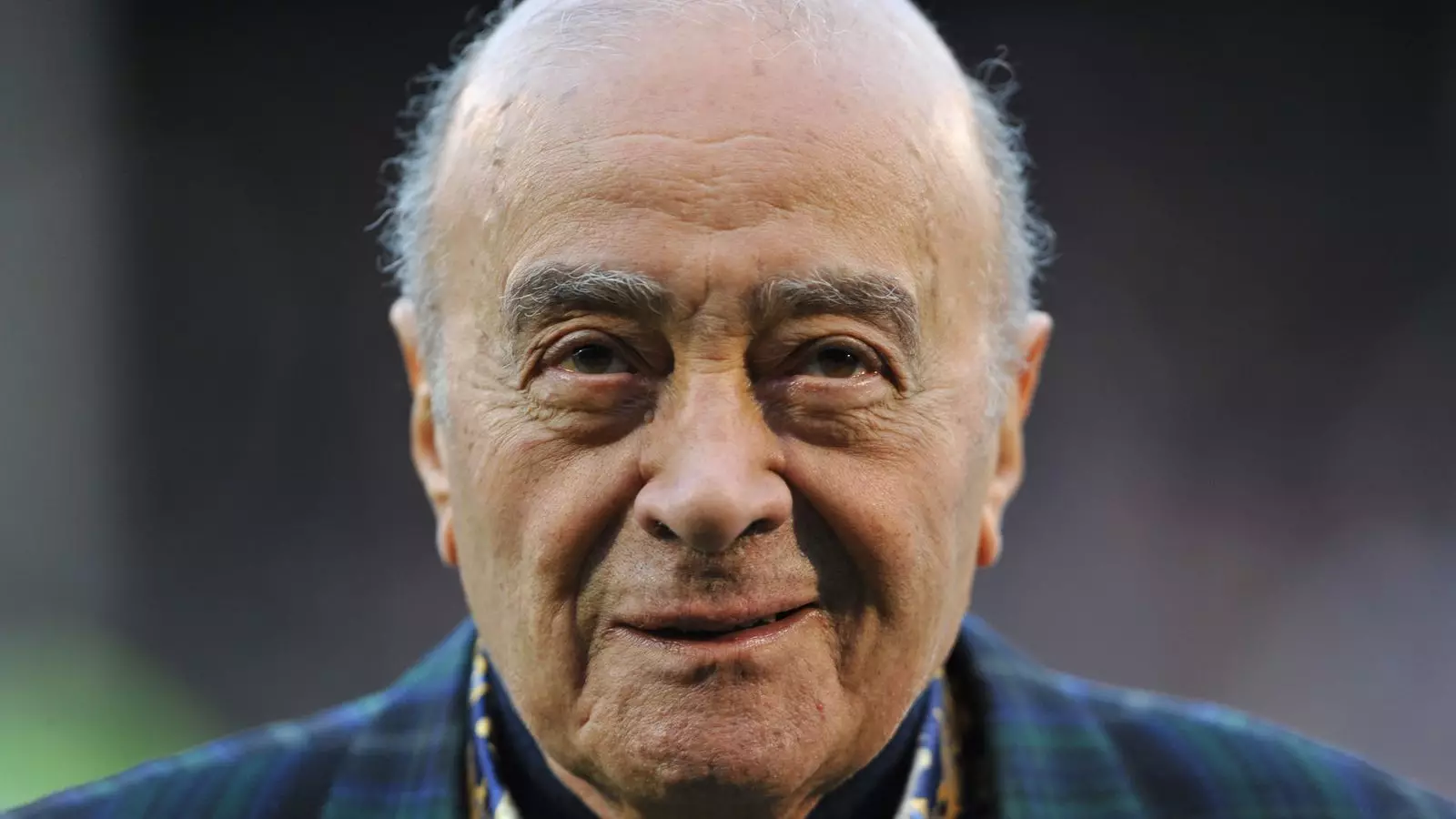The recent acknowledgment from the Crown Prosecution Service (CPS) regarding the failure to formally charge Mohamed al Fayed over allegations of sexual abuse raises serious questions about accountability in the justice system. The late Harrods owner, who passed away at the age of 94, has been accused by several women of heinous acts, including rape and sexual assault, during their employment at the renowned luxury department store. Described as a “monster” by the legal representatives of these victims, the comments paint a picture of an individual whose wealth may have facilitated a life free from consequences.
The allegations against al Fayed are severe and multifaceted, with claims that he strategically selected women to occupy his executive suite—an alarming tactic often associated with individuals who exploit power imbalances for predatory behavior. Given the volume of inquiries—over 150 according to the legal team representing the alleged victims—this suggests a systemic issue that could lie deeper than the actions of one individual.
The CPS has admitted that evidence from the Metropolitan Police was reviewed on at least two occasions, specifically in 2008 and 2013. The fact that no charges were ever filed highlights significant concerns regarding the efficacy and integrity of the legal processes intended to protect vulnerable individuals. In both instances, conflicting evidence was cited as a reason for not prosecuting. While the CPS’s desire to ensure a realistic prospect of conviction is commendable, it leads to an uncomfortable inquiry: are the standards for “enough evidence” being applied equitably, especially in high-profile cases involving powerful individuals?
The lack of charges despite multiple investigations could be seen as indicative of a broader systemic failure, rooted perhaps in institutional biases about who is deemed credible based on their societal status or influence. This has implications not just for the victims speaking out, but for the integrity of the legal process as a whole.
The recent surge in inquiries following a documentary on al Fayed signifies the powerful role media plays in shaping public consciousness and eliciting responses from victims who might otherwise remain silent. The testimonies of those who have come forward reveal a chilling narrative of predation, and the media’s function to amplify these voices must not be underestimated.
Furthermore, the warning issued to the Royal Family regarding al Fayed’s reputation underscores an additional layer of concern: the intersection of privilege and vulnerable relationships. Dai Davies, a former head of royal protection, expressed his concerns about the businessman in the late 1990s, suggesting that the issue of al Fayed’s reputation was known well before the tragic events surrounding Princess Diana. It’s alarming to consider that individuals in protective roles felt compelled to voice concerns that, if disregarded, could have jeopardized the safety of prominent figures.
In light of these revelations, organizations directly associated with al Fayed, including Harrods and Fulham FC, have publicly expressed their distress over the allegations. Harrods, in particular, took the step of inviting former employees with allegations to come forward, reflecting a growing acknowledgment among corporations regarding their responsibility to provide a safe working environment. This may signal a turning point in how businesses address historical grievances, but it also emphasizes the necessity for ongoing vigilance and proactive measures to ensure justice.
It is crucial that corporate entities are held responsible not only for the actions of their leaders but also for fostering a culture of accountability and respect. Apologies and invitations for testimony, while necessary steps, must be accompanied by actionable plans that demonstrate a commitment to system-wide reforms.
The complex narrative surrounding Mohamed al Fayed’s legacy is a stark reminder of the urgent need for change in the ways institutions respond to allegations of abuse. Acknowledgment of past failings is a vital first step, but it must be coupled with tangible actions that promote justice and healing for victims. The legal system, corporate entities, and society as a whole must confront the uncomfortable realities of power, privilege, and protection in order to create a landscape where accountability is paramount, and individuals can trust that their voices will be heard and respected.


Leave a Reply